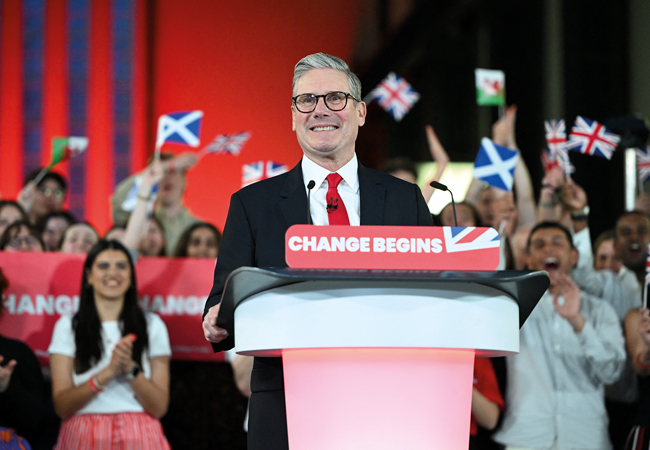The UK should be more ambitious and aim for a 78% cut in greenhouse gas emissions by 2035, according to the Committee on Climate Change (CCC).
In its latest advice to government, the independent parliamentary group said this accelerated goal was essential if the country was to achieve net zero by 2050. It represents a considerable step up from the original Climate Change Act, which only committed the country to reducing net emissions by 80% by 2050.
The new goal was the headline measure in the CCC’s Sixth Carbon Budget, which covers the period between 2033 and 2037, and is the ‘toughest yet’, according to MPs. It states that the government will need to allocate £50bn more each year to decarbonisation by 2030 than it did in 2019.
Chief executive of the CCC Chris Stark said the UK would have to decarbonise at a faster pace in the next 30 years than it has in the past 30 to deliver its net-zero promise – including moving to net-zero heating systems by the early 2030s as part of a major retrofit programme covering most of the country’s 28 million existing homes.
Stark said decarbonisation needed to be ‘front-loaded’ with more being done in this decade and the first half of the carbon budget period than in later years, to reduce the cost of transition and provide technology incentives for investors through policy certainty.
The committee also revised down the cost of delivering net zero to between 0.5% and 1% of gross domestic product (GDP), from between 1% and 2% of GDP, because economies of scale were driving down the cost of certain technologies. Stark said the UK economy would grow by just 3% less through to 2050 by aiming for the net-zero targets than it would under its original Climate Change Act Commitments.
‘As we emerge from the Covid-19 pandemic, the Sixth Carbon Budget is a chance to jumpstart the UK’s economic recovery,’ said CCC chair Lord Deben. ‘Anything less would shut us out of new economic opportunities. It would also undermine our role as president of the next UN climate talks.’




